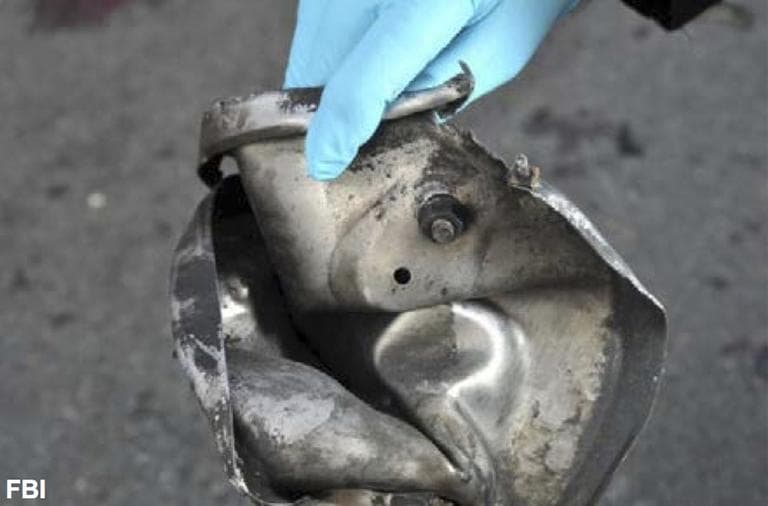Advertisement
Officials: First Multiple Use Of IEDs On U.S. Soil
Resume
Improvised bombs, packed with nails and ball bearings, have long been the weapon of choice in Afghanistan, where, according to reporting in The Boston Globe, pressure cookers are common in the kitchen.
Homeland Security officials say this is the first time that multiple IEDs (improvised explosive device) have been used in an attack on U.S. soil.
The improvised bombs that exploded near the Boston Marathon finish line contained shards of metal, nails and ball bearings, according to doctors who operated on the victims.
Fred Burton investigated the first World Trade Center bombing and served as deputy chief of counterterrorism for the U.S. State Department's Diplomatic Security Service. He's now with the intelligence firm Stratfor.
He explains how pressure cooker bombs work and what he can tell about the composition of the IEDs, based on the smoke visible in videos of the explosions.
Al-Qaida promoted pressure cooker bombs in a chapter called “Make a bomb in the kitchen of your mom,” which appeared in the summer 2010 issue of Inspire, the terrorist group’s online English-language magazine.
The Department of Homeland Security issued a warning in 2004 about the potential use of pressure cookers, saying terrorist training camps in Afghanistan commonly teach how to make them.
There was also a 2010 warning from the FBI and Homeland Security saying pressure cookers could conceal IEDs.
Pressure cooker bombs are also built and detonated for recreational purposes in the U.S., as evidenced by a number of videos online.
Guest:
- Fred Burton, vice-president of intelligence for Stratfor. He served as deputy chief of counterterrorism for the U.S. State Department's Diplomatic Security Service.
This segment aired on April 17, 2013.